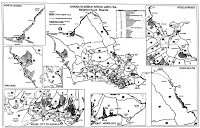Accessory Dwelling Units (ADU’s) are one component, a first step, towards improving affordability of our great city. In setting policy, the power of the private homeowner is often overlooked as government tends to focus on larger projects of several hundred acres of land or thousands of homes. But that can take decades to develop, whereas the local homeowner is more often ready, willing and able to take on small scale alterations and additions that can add dwelling units to a neighborhood, right now! Sprinkled throughout a community, housing capacity can be added without government subsidy, requiring no ongoing maintenance or management on the part of the government. Affordable Housing has never looked this good!
- What is an Accessory Dwelling Unit?
- Honolulu's Need for Affordable Housing
- Demographic Trends
- Illegal Rentals (or what people are doing now)
- Rec Rooms that are rented illegally, have all the benefits of legal units, without contributing to infrastructure costs or paying the required fees.
- Illegal units increase cost burden for Legal Units (fewer shoulders to carry infrastructure costs)
- Prelim Research shows 48% of homes sold in Honolulu contained 2nd units.
- Consider an Amnesty Program for illegal units, as a way to increase # of legal units. (ie Marin County's Amnesty Program)
- Going forward, easing Regulations will encourage compliance
- ADU's in Honolulu: a Million Dollar Idea

- Low-Hanging Fruit -- ADU's are most readily achievable, easiest to implement strategy for creating affordable housing in Honolulu. It does not require gov't subsidies to build or sustain.
- Existing 2nd dwelling units contribute $1.6M every year.
- $660,000/mo in GET from Rental Income
- ADU's generate est $1,000,000 Sewer Fees every month
- Illegal dwellings cost $1,000,000 in Lost Sewer fees
- Additional Lost Revenue: Property Tax, General Excise Tax, Utility metering, Permit Fees, etc.
- ADU's provide workforce housing, mostly within Urban Core of Honolulu
- ADU's contribute to Sewer Base Charge and Sewer Usage fees; City could use additional revenue.
- ADU's can supplement monthly Sewer Base and Usage Charges
- Smart Growth, preserves Greenfields (agriculture and preservation lands), reduce urban sprawl - Live/Work/Play in town.
- Reduces Traffic and Vehicle Miles Traveled (VMT) -- consistent with Smart Growth and Hawaii's state energy efficiency goals of reducing dependence on foreign oil.
- Convert Ohana Zone into ADU Zone

- Ohana Zones -- areas w/ adequate infrastructure -- already mapped and identified. There are approx 15,000 properties in the Ohana Eligible zone.
- Going forward, if regulations are relaxed, gov't can expect increased rate of compliance
- ie. more legal units, less illegal units.
- Majority of Ohana Units were permitted before 1990, when we had less restrictions.
- Current # of Ohana Units permitted in FY2007 and FY2008 vs Single-Family Homes
- Ohana Units (unpopular) currently only 1 to 2% of all New Dwelling Permits.
- Average cost of new Ohana Dwelling = $205,980 (FY2008)
- Average cost of new Single-Family Dwelling = $337,833 (FY2008)
- ADU's are often converted spaces and will cost less to build than a typical Single-Family home.
- Adoption Rate of ADU's in Honolulu expected similar to 1982: Ohana Units approx 25% of new homes.1982 was also a slow year for construction industry.
- Other States/Cities allow ADU's
- State Mandated 2nd Units: the Fast Track to Affordable Housing
- States that have ADU's: California, Connecticut, Florida, Georgia, Illinois, Maine, Massachusetts, New York, Oregon, Vermont, Virginia, Washington. HUD Case Study for ADU's in multiple states
- Cities: Santa Cruz, Portland, COUNTY OF MAUI
- Financing for ADU's
- Implementing ADU's in Honolulu
- Gathering public input to discuss concerns in shaping Ordinance
- Caution: too many requirements are a deterrent to legally permitted units and will encourage perpetuation of illegal units
- Gathering Dept of Planning & Permitting input
- Projected income: Wastewater revenue generated from ADU's
- Sewer Consent Decree - may create additional sewer capacity and increase # of eligible ADU properties
- Projected # of ADU's + Revenue Projections
- Hi / Med / Low revenue estimates

